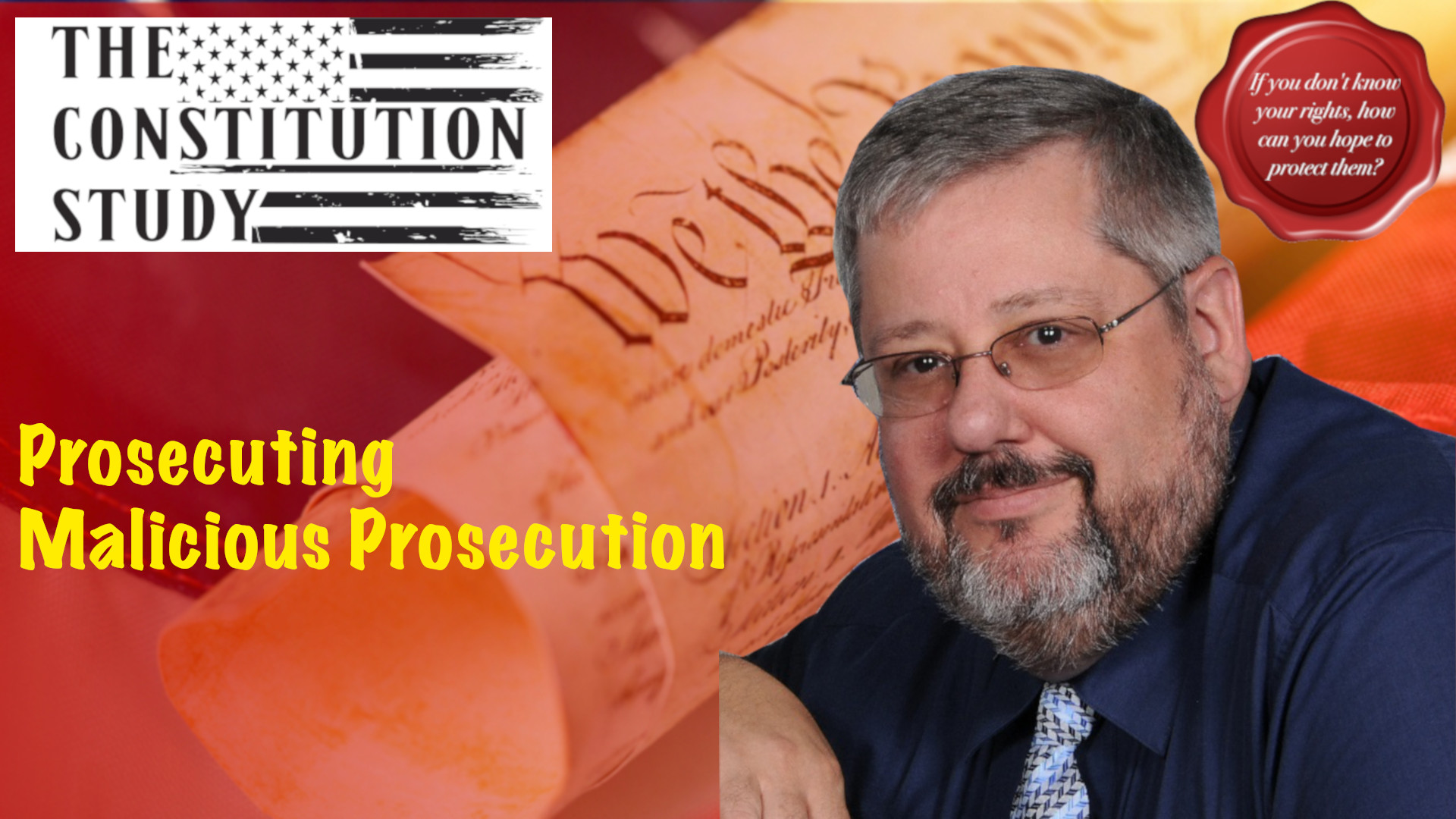4th amendment

444 – Bootstrapping or Malicious Prosecution
How far can law enforcement go when it comes to arresting someone? For example, say police have probable cause to charge you with a misdemeanor, how far can they “bootstrap” that charge to something more serious? That appears to be the question in the case Chiaverini v. City Of Napoleon, Ohio. While dealing with a misdemeanor situation, Mr. Chiaverini was subsequently was charged not only with that, but a felony. One little problem, the police had no probable cause for the felony.
Read More
438 – Legal firearm possession as probable cause
Encountering law enforcement can be a nerve wracking situation, even if you’ve done nothing wrong. Imagine you’ve been pulled over to safely deal with something in your vehicle, then have a police officer pull up behind you. Nothing to worry about, right? You’ve done nothing wrong. Then imagine, after providing your drivers license, you’re pulled…
Read More
419 – Is the Constitution a Threat to National Security?
A policy statement released by the Executive Office of the President, Office of Management and Budget effectively made a very bold statement, that the Constitution of the United States was a threat to national security. Does this not remind you of the saying from Benjamin Franklin?
“They who would give up an essential liberty for temporary security, deserve neither liberty or security.”
Benjamin Franklin
Are the American people willing to give up their right to be free from unreasonable searches for the promise of national security?
Read More
390 – Civil Asset Forfeiture, Policing for Profit
The more things change, the more they stay the same. Several years ago I wrote an article about the Battle of Athens, TN. In the article I showed the corruption in McMinn County Sheriff’s Department, where the Sheriff and his deputies did not receive a salary, but were paid for everyone they booked, incarcerated, and released. This perverse incentive let to deputies routinely boarding buses to “fine” and jail the passengers for any alleged violations they could come up with. When subject to this corruption, many GIs returning from World War II were led to challenge the corrupt county Sheriff and other office holders. This challenge led not only to an embattled election, but an armed uprising in an attempt to restore the rule of law.
Read More
368 – Are Geofence Warrants Constitutional
Most of us are aware that generally law enforcement to get a warrant before searching our property. Recent advances in technology however have made the distinctions for the necessity of a warrant more and more difficult. For example, can law enforcement search for cellphone data within an area for their criminal investigations? Are these geofence warrants a violation of the Fourth Amendment’s requirement that warrants be issued only when there is probable cause and specifically stating the places to be searched and the things to be ceased? A recent case heard in the California Court of Appeals looks to answer that very question.
Read More
354 – Inspector Government
I received an email asking me to “delve into Rental Inspection Programs.” I have to admit, having lived my adult life in rural America and owning my own home for over 30 years, I haven’t had to deal rental inspection programs. While I was researching these programs, I realized they may be just the tip of a truly large iceberg.
Read More
334 – Defending Your Right Against Unreasonable Searches
When a government agent stands at your door asking to come in, do you know what your rights are? What would you do if that agent tries to enter your house illegally? If that day comes, the difference between liberty and incarceration may well depend on how well you know your rights and how prepared you are to assert and defend them.
Read More
315 – Prosecuting Malicious Prosecution
What can you do when government actors abuse their powers? I’ve talked before about the right to petition the government for a redress of grievance and how the judicial precedent of sovereign immunity violates that right. But what happens when law enforcement or the justice department abuses their prosecutorial powers? How do you seek redress for a malicious prosecution? For years it has been extremely hard to do so, but a recent Supreme Court opinion may balance the scales.
Read More